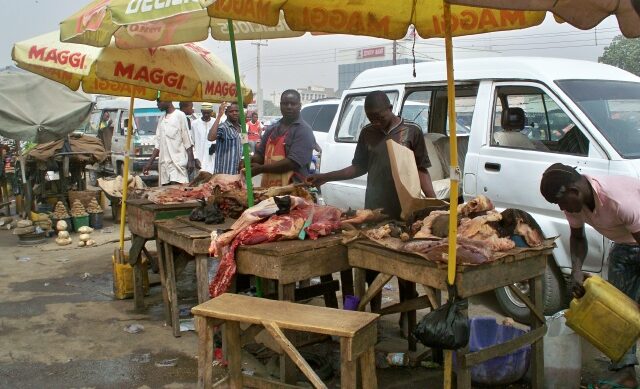Butchers in Lagos have attributed the recent hike in the price of beef to severe flooding in parts of northern Nigeria and the accompanying disruptions in transportation routes.
Speaking with newsmen on Tuesday, several meat traders across major Lagos abattoirs lamented that the cost of sourcing cattle has increased significantly, forcing them to raise beef prices in the state. According to the traders, most of the livestock consumed in Lagos are transported from northern states such as Borno, Taraba, Adamawa, and Sokoto—regions currently affected by seasonal flooding and road inaccessibility.
A butcher at the Oko-Oba Abattoir in Agege, Alhaji Sule Lawal, explained, “Due to the flooding, many cattle dealers can no longer access grazing fields or transport animals down south. The few that manage to bring in cows face higher transport charges and losses along the way. All of this affects the final market price.”
Consumers across Lagos have expressed concern over the sharp increase, with some households saying they can no longer afford to buy beef regularly. Meat that previously sold for between ₦2,000 and ₦2,500 per kilogram now sells for over ₦3,000, depending on the location and meat type.
The Lagos State Butchers Association has appealed to the Federal Government to intervene by improving transport infrastructure and supporting affected northern farmers to ensure stable food supply nationwide.
As of now, the situation remains tense as market forces continue to drive prices upward amidst ongoing environmental and logistical challenges.
